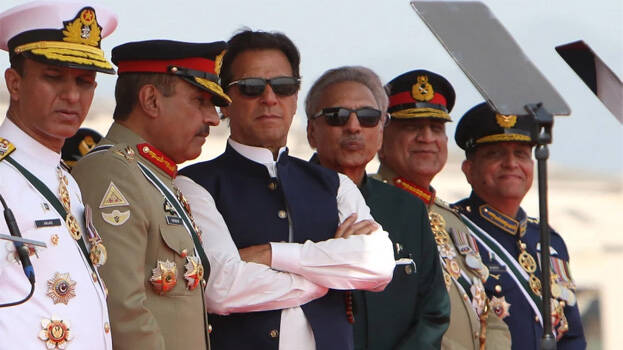

KARACHI: We all know that New Delhi is the national capital of India. Pakistan's capital is Islamabad. But how many people know that besides Islamabad, Pakistan has another unofficial secret capital? Rawalpindi is the unofficial capital of Pakistan. Islamabad is the administrative centre of Pakistan's political leadership while Rawalpindi is the centre of military leadership.
Pakistan's greatest curse is these two distinct elements in the country's governance. Till date, no democratically elected Prime Minister of Pakistan has completed his term. The country, which has twice overthrown a democratic government through military rule, also has a history of assassinating its head. Even if Imran Khan loses power, it will be a milestone in the history of Pakistan. This is because Imran Khan will lose his power in a democratic election even if his term is not over, which is unheard of in Pakistan.
The biggest problem in Pakistan so far has been the independence of the military in administrative matters. Many of the decisions taken by Islamabad were not acceptable to Rawalpindi, especially on issues related to India and Kashmir. Attempts to establish friendship with India during Nawaz Sharif's tenure have finally led to military rule led by Pervez Musharraf. During Nawaz Sharif's friendly talks with India, Musharraf was planning to infiltrate Kashmir. It was these same reasons that later led to the Kargil war.
No Prime Minister of Pakistan has been able to rule peacefully without pleasing the military leadership. That situation changed only after Imran Khan came to power. Current Army Chief Qamar Javed Bajwa has repeatedly stated that he is an official under Prime Minister Imran Khan and that the Pakistani military will not interfere in the administrative affairs of the country for any reason. It is also noteworthy that the loss of power of Imran Khan was not due to the displeasure of the military like the previous Prime Ministers of Pakistan. The protests were triggered by rising commodity prices and the financial crisis in the country, which led to loss of majority of Imran Khan in Pakistan's National Council.
This is why Imran's decision to hold elections within three months of the dissolution of the National Council is of great significance. Whether or not Imran wins the election, his decision will ultimately be considered as a victory for democracy. It is also a situation unfamiliar to Pakistan.